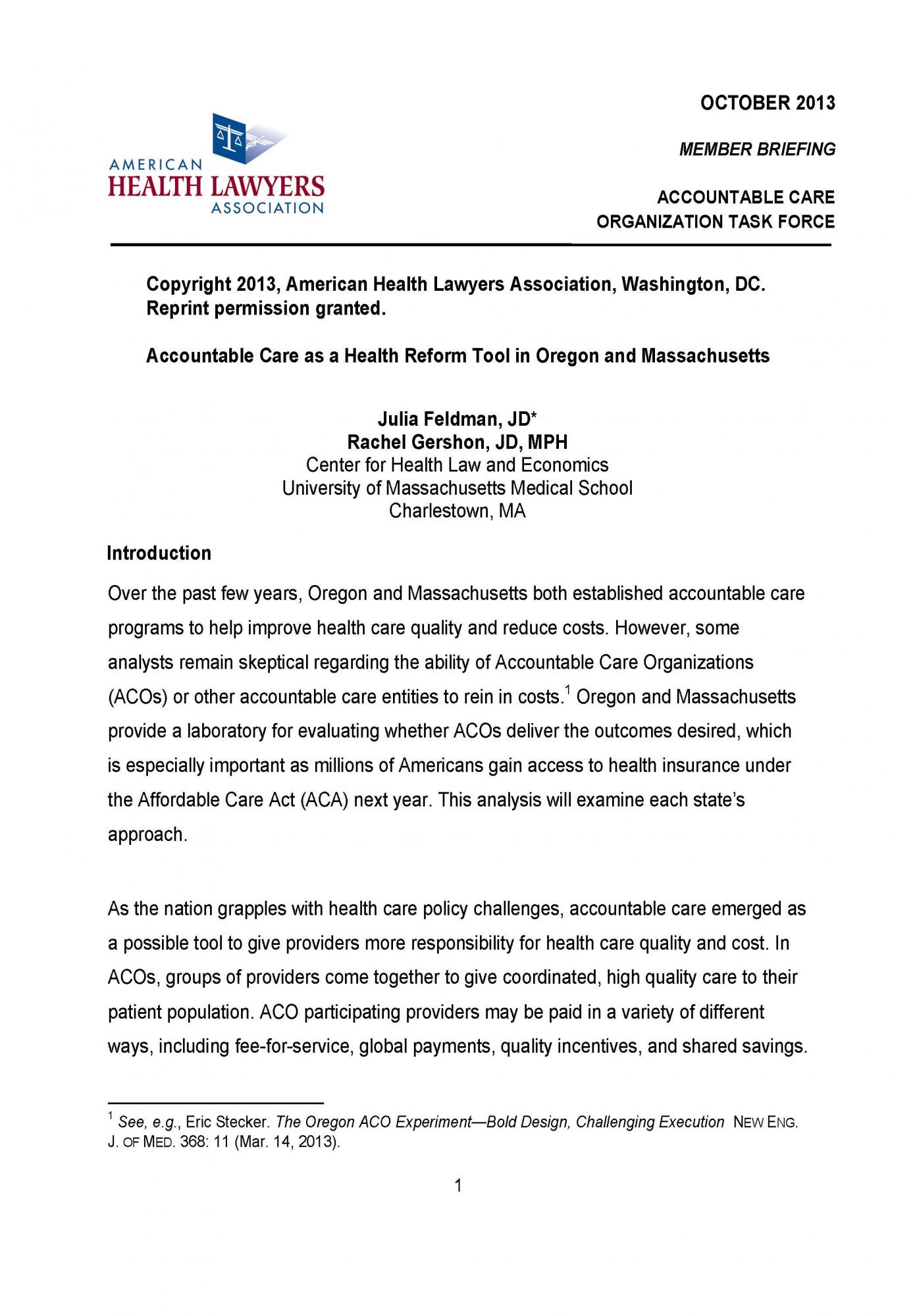Over the past few years, Oregon and Massachusetts both established accountable care programs to help improve health care quality and reduce costs. However, some analysts remain skeptical regarding the ability of Accountable Care Organizations (ACOs) or other accountable care entities to rein in costs. Oregon and Massachusetts provide a laboratory for evaluating whether ACOs deliver the outcomes desired, which is especially important as millions of Americans gain access to health insurance under the Affordable Care Act (ACA) next year. This analysis examines each state’s approach.
As the nation grapples with health care policy challenges, accountable care emerged as a possible tool to give providers more responsibility for health care quality and cost. In ACOs, groups of providers come together to give coordinated, high quality care to their patient population. ACO participating providers may be paid in a variety of different ways, including fee-for-service, global payments, quality incentives, and shared savings.

